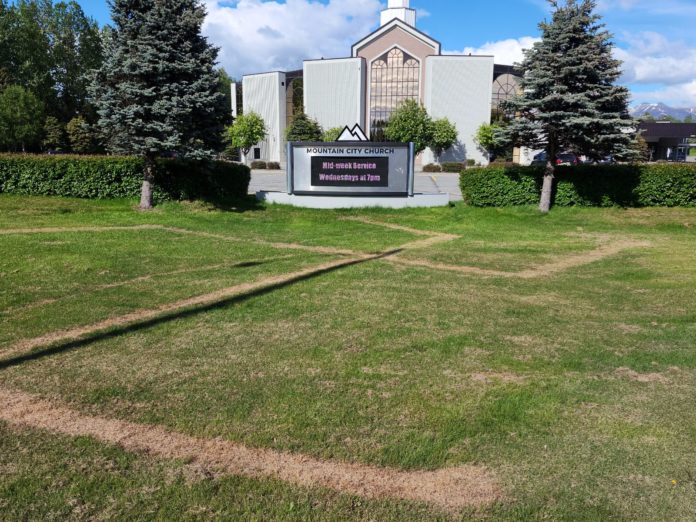The rise of antisemitic and anti-Christian vandalism is the motivation behind House Bill 238, which makes it a Class C felony to target houses of worship with property crimes.
The bill amends Alaska’s statute on criminal mischief in the third degree to include the crime of “institutional vandalism.” According to the sponsor, Rep. Andy Josephson, 42 states and Washington, D.C. make this and desecration of a grave crimes that are more serious than regular property damage.
Alaska already considers it a Class C felony to deface, desecrate, or destroy a cemetery or place of burial. The additional language adds places like churches and synagogues.
The bill adds the extra penalties to someone who “defaces or damages real property that (i) has a place of religious education or worship located on it; and (ii) if leased or used by a religious organization and is a part of a larger property, is the part of the property leased or used by the religious organization, including the access to the entry of the part of the property; or (D) defaces or damages tangible personal property that has religious significance and is used by religious organization or displayed for educational purposes.”
It would be a Class C felony if the property value is $750 or more, a Class A misdemeanor if the property value was between $250 and $750, and a Class B misdemeanor if the property value is less than $250.
Josephson’s office mentioned that there have been three recent desecrations of note: Mountain City Church in Anchorage, where someone used a chemical to burn a swastika shape onto the front lawn; a smashed crucifix at a church in Chefornak, and a phallic symbol painted on the entryway of a church in Eagle River. Nazi stickers were plastered on the walls of the Alaska Jewish Museum, and a swastika was carved onto the door.
In the Senate, the amended bill passed 17-2, with Sen. Shelley Hughes excused.
Voting yea were Sens. Bishop, Bjorkman, Claman, Dunbar, Giessel, Gray-Jackson, Hoffman, Kaufman, Kawasaki, Kiehl, Merrick, Myers, Olson, Stedman, Stevens, Tobin, and Wielechowski.
Voting nay were Sens. Shower and Wilson
The bill now goes back to the House for concurrence with minor changes and then would be ready for the governor’s approval.
